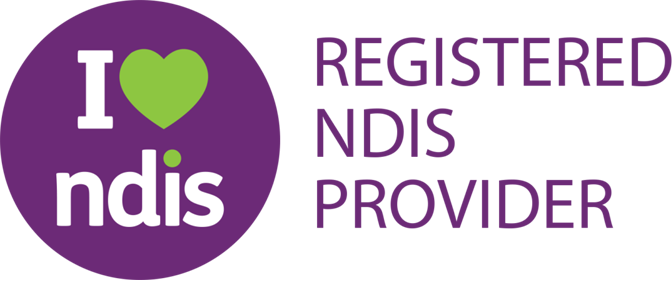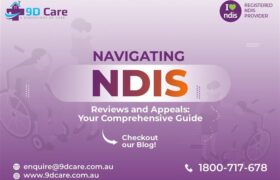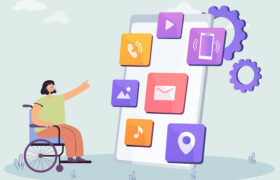TYPES OF DISABILITY
Any condition that makes it more difficult for a person to engage in specific activities or enjoy equal access within a given society is considered a disability. It can also be defined as a condition or function that is deemed to be significantly lower than the usual level of an individual or group. Disabilities may be physical, intellectual, mental, sensory, or a combination of multiple factors. A person may be born with a disability or develop one throughout their lifetime.
Disabilities can be broadly classified as:
- Intellectual Disability
- Mental Disability
- Physical Disability
- Sensory Disability
People with the same disability may or may not have the same experiences. One can have one or more than one disability.
What is an Intellectual Disability?
When a person exhibits specific limits in cognitive functioning and capabilities, such as communication, social, and self-care abilities, it is said that they have an intellectual disability (or ID). Due to these restrictions, a child may grow and learn more slowly or otherwise differently than a child who is developing normally at the same age.
The most prevalent primary disability in Australia is intellectual disability, which affects about 3% of the population. (Australian Institute of Health and Welfare).
Genetic conditions, difficulties during pregnancy or delivery, health issues or illnesses, and environmental factors can all contribute to intellectual disability.
Types of intellectual disabilities
- Down’s Syndrome
Down syndrome is a genetic disorder that affects physical and developmental functioning in a minor to severe manner. - Fragile X Syndrome
The most prevalent known genetic intellectual disability cause in the world is fragile X syndrome. It is a genetic condition caused by a mutation (a change in the DNA structure) in the X chromosome.Although the severity might vary considerably, people with Fragile X syndrome may encounter a wide range of physical, developmental, behavioural, and emotional challenges.
What is Mental Disability?
A mental disability is one that can disrupt daily life activities or require additional accommodations. They can be broken down into two categories, psychologic and cognitive. Mental disabilities or disorders have an impact on your emotions, thinking, feelings, and behaviour. They could be transient or persistent (chronic). Your ability to interact with people and carry out daily tasks may be impacted.
Many sorts of mental illnesses or disorders can affect people, and they frequently do so simultaneously. Mental diseases can be episodic or develop over a brief period. This implies that the mental disorder has distinct origins and finishes and comes and goes. Long-term or persistent mental illness is another possibility.
There are many different conditions that are recognized as mental illnesses. The more common types include:
There are many different conditions that are recognized as mental illnesses, they affect a person’s thinking, emotional state, and behaviours.
- Schizophrenia
A complex psychotic disorder called schizophrenia is characterised by disturbances in thinking, feeling, and reality perception. Among the many symptoms of schizophrenia are hallucinations, delusions, thought disorders, social disengagement, a lack of desire, and cognitive and memory impairment.
The danger of suicide is very significant for those who have schizophrenia. - Depression
Depression is a mental disorder that has a substantial impact on how someone feels, resulting in a persistently low mood as well as emotions of hopelessness and loss. Generally, this is due to a combination of recent events such as personal factors, family history, drug and alcohol use, as well as changes within the brain itself.
What is Physical Disability?
The phrase “physical disability” refers to a “restriction on a person’s physical functioning, mobility, dexterity, or stamina” that has a “significant” and “long-term” detrimental influence on a person’s ability to do typical everyday tasks. The effects of a physical disability on a person’s life vary from person to person.
Types of physical disabilities.
Different types of physical disabilities may affect, either temporarily or permanently, a person’s physical capacity and/or mobility.
- Cerebral Palsy
Cerebral palsy is a physical disability resulting from injury to the developing brain during pregnancy, birth, or shortly after birth. The main causes of cerebral palsy are diseases during pregnancy, premature birth, and meningitis in young children. An individual with cerebral palsy may have behavioural, intellectual, speech, and visual disabilities. - Arthritis
Inflammation and discomfort are symptoms of arthritis, a medical condition that affects joints, bones, and muscles. The condition affects both children and adults and takes many distinct forms. Muscular aches and pains, joint inflammation, and restricted movement or stiffness are typical symptoms of arthritis. If given the appropriate resources and surroundings to manage their impairment, people with arthritis can regain control over their movements. - What is a sensory disability?
It is a neurological disorder that affects the human brain’s ability to process sensory information. Sensory disabilities include low vision, blindness, deafness, and hearing loss. This disability may not only cause them impairment, but they may also require significant support to fully participate in their lives and assist them in some aspects of society.
Types of sensory disabilities
- Autism Spectrum Disorder
The neurological and developmental disorder known as autism spectrum disorder has an impact on how people connect with each other, communicate, learn, and behave. The degree of the impairment may range from hardly perceptible to necessitating daily assistance. - Deafness and loss of hearing
Both deafness and hearing loss are severe sensory impairments that indicate a person’s inability to receive sounds in one or both ears. There are four primary categories of hearing loss, which correspond to the processes by which sound is taken in by our ears and processed by our brains.They are:- Conductive hearing loss
- Sensorineural hearing loss
- Mixed hearing loss
- Auditory neuropathy spectrum disorder
- Blindness and low vision
Do you know?
In Australia, 1 in 6 people have a disability.
The disability-free life expectancy of people in Australia is increasing over time.
Whatever your needs are—or those of a loved one—9Dcare will work with you to establish your priorities and identify the best solutions so you may live the life you want. We can recommend you to any specialists you might need because we have the knowledge and experience you can rely on.
What does a support coordinator do each day? How do they support you? And what makes a good support coordinator? “It.
The National Disability Insurance Scheme (NDIS) is crucial in supporting individuals with disabilities in Australia. Navigating NDIS reviews and appeals.
A fulfilled life requires good mental health. A healthy mind is as essential as a healthy body. Our mind encompasses.
Physiotherapists help both prevent and treat injuries. They can treat several problems caused by an injury, disability, or disease. To.
If you enjoy assisting others and attending to their needs, working as a support worker could be a fulfilling career.
The evolution of technology has undoubtedly brought about immense convenience and accessibility in many aspects of our lives. With just.
Our team can come to you to discuss face to face your needs and discuss how we can best support you to achieve your goals. Contact us today to arrange an appointment.








